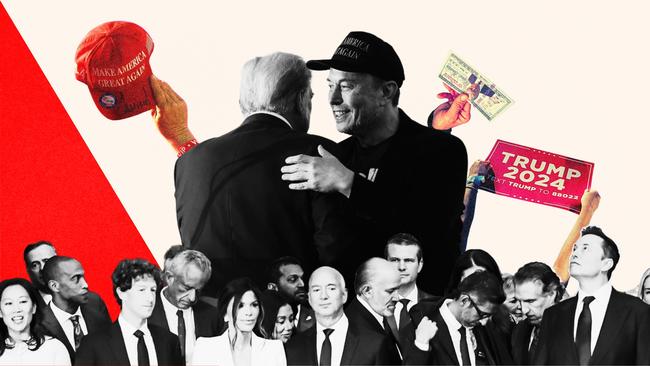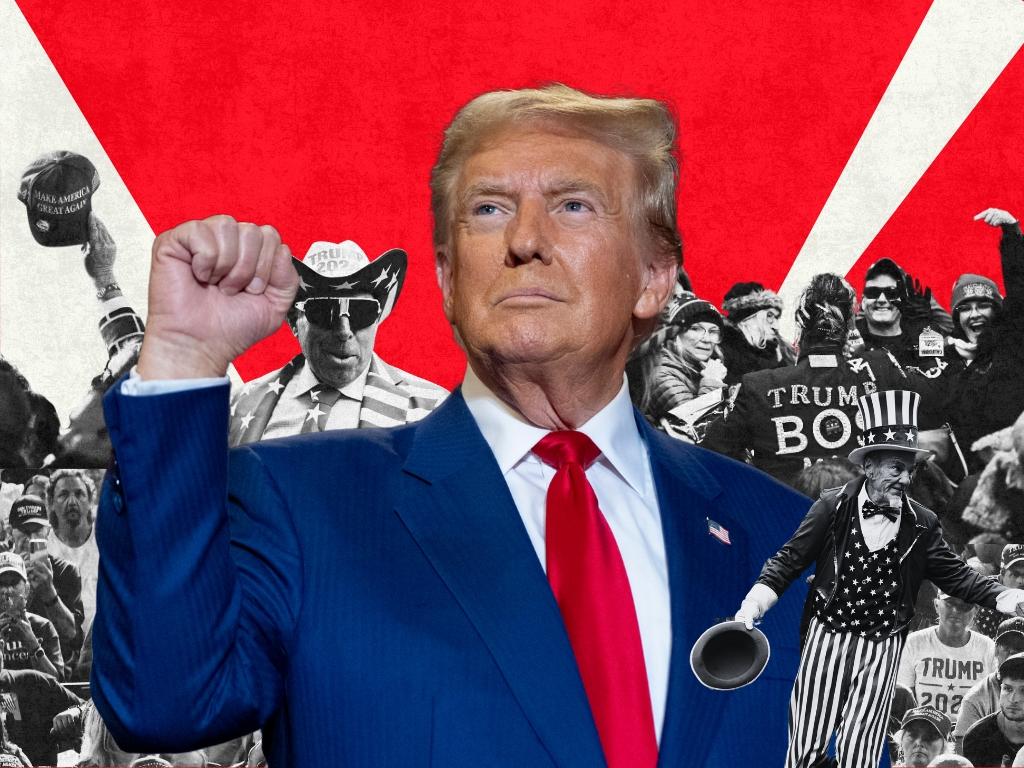An exceptional marriage of populists and tech barons

I think Trump’s return means exactly the opposite. His remarkable political recovery demonstrates the enduring strength of American cultural forces that have, for more than two centuries, made America uniquely hospitable to the disruption and chaos that dynamic capitalism inevitably brings.
Trump’s MAGA coalition has at least temporarily brought together two groups who are at daggers drawn in much of the world: angry populists seeking to defend the identities and, as they see it, the traditional values of their societies, and entrepreneurial tech lords pushing for deregulation and the rapid deployment of cutting-edge technologies that are likely to displace many blue-collar workers.
It will take some fancy footwork by Trump to keep these rival wings of his coalition together, but the job isn’t impossible.
American populists are typically more pro-capitalist than populists in Europe and elsewhere, and America’s tech lords have less reason to object to the populist elements of the MAGA agenda than do the leaders of more traditional industries and firms. There is a large set of issues on which Trump’s base and his tech allies agree, and even their differences offer more room for compromise than many observers expect.
MAGA’s hatred of entrenched bureaucracies and the smug professional classes who run key American institutions meshes very comfortably with the tech agenda. The economic reform American populists seek is less about restraining the power of large corporations than about restraining the power of the bureaucracies that hamper businesses large and small. And while many blue-collar Trump constituents may fear and resent the effect of artificial intelligence and other revolutionary technologies on employment, much of the President’s base will cheer if tech displaces large numbers of bureaucrats, bankers and lawyers. That base won’t support technology regulations or demand antitrust suits aimed at preventing the automation of upper middle class professional jobs.
Meanwhile, the elements of the MAGA agenda that raise eyebrows in C-suites and economics departments, such as industrial protectionism and immigration restriction, are less worrisome for the tech lords than for many other businessmen.

Tech firms are less vulnerable to the consequences of tariff and trade barriers than companies like Walmart. And while the tech industry’s staunch defence of the H-1B visa program enrages some populists, the tech industry is far less dependent on low-wage immigrant labour than many other economic sectors.
Overall, a compromise in which Trump’s tech allies support caps on unskilled immigration and tight border controls while keeping the door open for migrants with the skills tech needs seems within reach.
The combination of reshoring production and restricting the growth of the labour force may be a net positive for tech. Faced with paying US wages to production employees, manufacturers will invest much greater resources in technology that allows them to keep their headcounts low. That is good for the national economy and productivity overall. It is even better for the tech sector.
Meanwhile, protectionism, immigration and deregulation will support blue-collar labour demand even as the technology revolution disrupts one industry after another. That looks important. Robo-taxis are already beginning to roll across the streets of American cities. How long will the members of the Teamsters Union be needed to drive trucks?
This is how American exceptionalism works. While much of the West remains gridlocked among anti-growth greens, sullen socialists clinging to unsustainable welfare states and technophobic regulators more interested in blocking potentially dangerous technologies than in developing world-beating companies, American populists have aligned with tech moguls around a program of deregulation that will accelerate the transformation of the American economy. The pro-enterprise streak in American populism runs deep.
The colonists who revolted against Britain wanted, among other things, the freedom to conduct their business without the restrictions that British policy sought to impose.
Andrew Jackson’s populists weren’t capitalism-hating socialists who wanted to introduce central planning or stifle the animal spirits of American entrepreneurs. They hated the eastern coastal elite and its domination of finance, but they wanted to decentralise and democratise capitalist opportunity, not crush it.
The MAGA-populist/tech-lord coalition is a volatile one, and keeping it together will be taxing. It is too early to tell how successful the second Trump administration will be. But as your columnist attends this week’s World Economic Forum in Davos, Switzerland, he will be cautioning participants against underestimating the potential of America to renew itself in unlikely and even unseemly ways.
In aligning US policy with the needs of the most dynamic, future-facing elements in the economy, the MAGA movement and its new-found technology allies may be more consequential than many critics understand.
The Wall Street Journal





As the world braces for the second coming of Donald Trump, many fear and some hope that his return to power means the end of American exceptionalism.